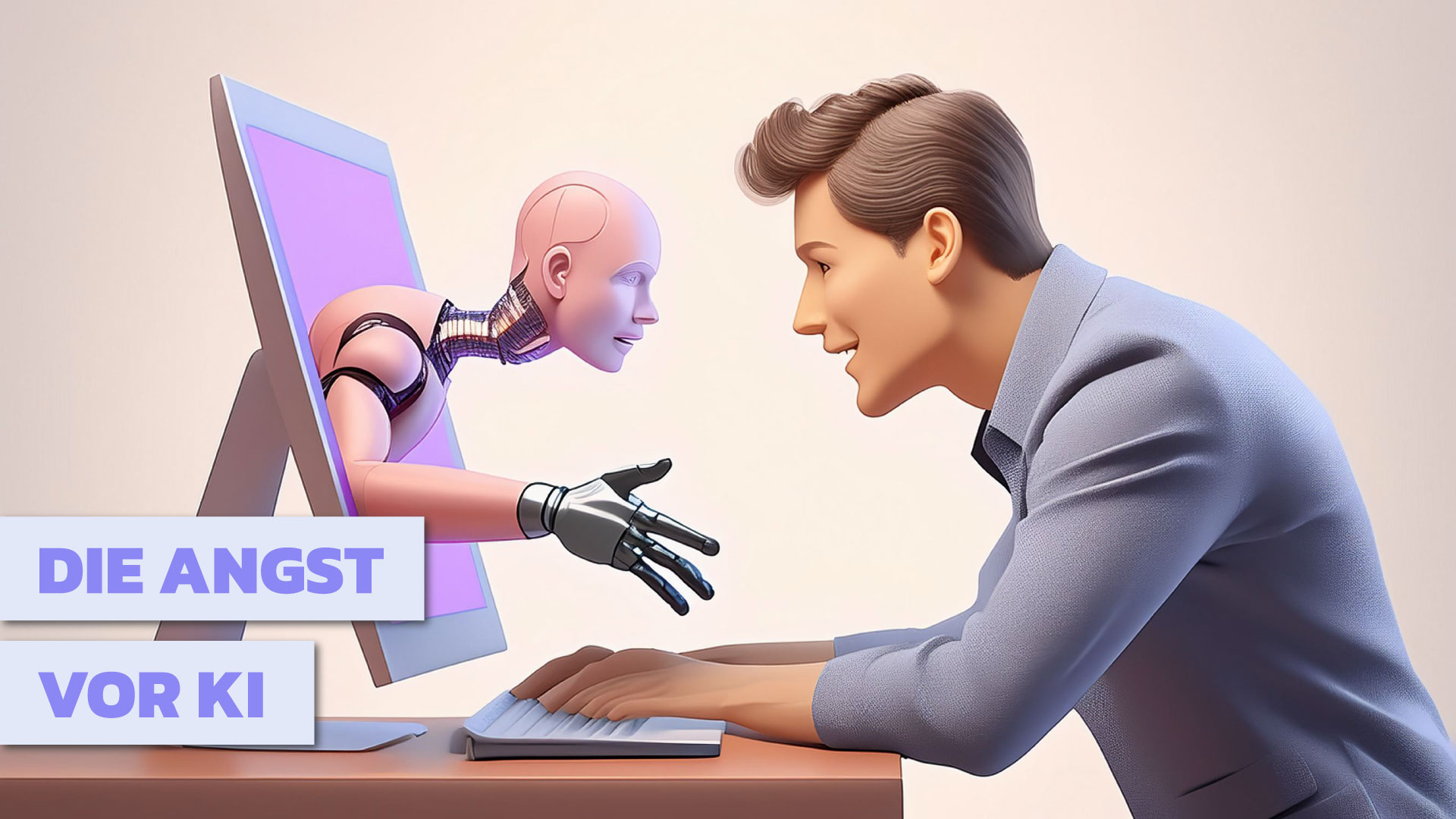In our Split Blog, we are addressing a very current and widely discussed topic today, namely the fear of artificial intelligence (AI). A topic suggested by our developer Sören, who ensures that Splitbot can also handle emails.
Where is the best place to start when it comes to such a sensitive topic? Perhaps with the fear itself. Fear warns us of dangers and helps us make quick decisions. In that sense, it is extremely important and useful for the survival of the human species.
We also often react with fear when we encounter the unknown. A reflex that also serves to act quickly and, for example, to flee. However, if our fear gets out of hand, it can severely impair daily life. That is why it is worth taking a closer look at the things that scare us and thus taking away their horror.
The image that exists in many people’s minds of artificial intelligence is – admittedly – a very threatening one. This image is often shaped by old science fiction classics and is clearly exaggerated. The media also contribute to this with their often very one-sided and negative reporting. The population consumes media to be warned of impending dangers – so it is no wonder that headlines often target our fears. However, if you look not only at the sensational headlines, but also read the associated articles, a completely different picture often emerges.
To get closer to the topic, there is another important point to clarify. Namely, the term “intelligence”. The word is derived from the Latin “intellegere” and means “to recognize”, “to understand” or “to see”. William Stern defined intelligence as the ability to adapt to unfamiliar situations. The ability of a person to find a solution even in a completely new situation.
According to the current state of technology, no AI system can do exactly that.
What appears to us as a spontaneous reaction, for example from chatbots, is in reality just a very quick access and output of predetermined data. Supposed humor, creative abilities or even predictions are based solely on the statistically highest probability of success that the system determines for the solution. Conversely, this also means that an AI cannot react if it does not have sufficient data to solve a problem.
What can we do with this knowledge in relation to our fears? Yes, AI systems can access much larger amounts of data much faster than most people. But will they be able to act and think independently in the foreseeable future, for example? Definitely not.
Yes, AI systems will change our working world. Processes will be accelerated and information flows will be changed. The tasks of workers will change equally in many cases. There will have to be experts who can operate and use these systems. So it’s time to prepare for this and deal intensively with the possible uses, instead of shutting yourself off out of fear. Further training and learning new skills have always been part of professional and personal development.
Yes, it is absolutely right to express concerns and question innovations. This is the only way to ensure that all relevant factors are taken into account in the development of artificial intelligence. Different perspectives are crucial to achieving good results. This makes it all the more important not to leave the development of artificial intelligence solely to huge corporations that often provide little insight, but to actively help shape it locally.

